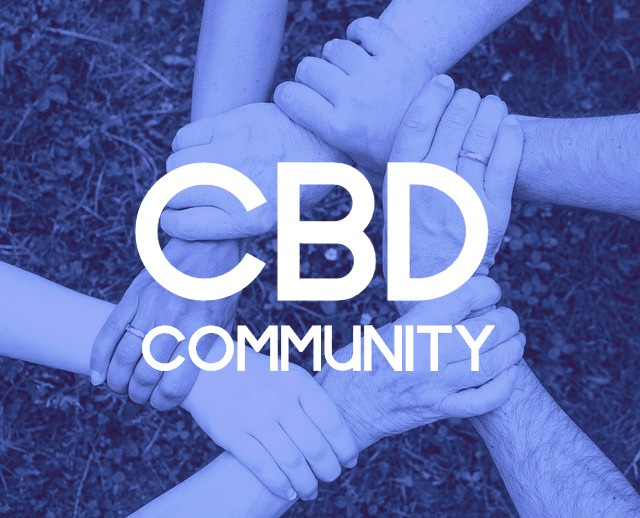Last updated on 26 May 2022
Does CBD interfere with aspirin or other antiplatelets?
- Aspirin may help certain people reduce their chance of suffering a stroke or heart attack. But, the antiplatelet may cause serious bleeding, according to a study published by University of Michigan Health System (UMHS) (1 ).
- The results of a study from 2012 research that was published in British Journal of Clinical Pharmacology revealed that CBD affected platelet production and could be a factor in the capability of CBD to slow down or stop the development of heart diseases (2 ).
- But, CBD can inhibit the cytochrome P450 (CYP450) system’s capacity to process certain substances, resulting in the overall growth in process time (3 ).
- In a study released in the American Society for Clinical Pharmacology and Therapeutics Researchers found results of low dose aspirin on CYP450 levels for healthy humans are specific to enzymes which means that the results depend on the type of enzyme (4 ).
- The specific effects of the combination of CBD and aspirin haven’t been proven in any long-term scientific research conducted on people, using both substances in combination is not advised.
- Consultation with a reputable medical professional who is experienced in cannabis is the most effective option for those who want to test CBD at first, or to include CBD within their existing regimen.
Understanding CBD
Medical marijuana, also called medicinal cannabis is the name for the derivatives of the Cannabis Sativa plant (20 ).
CBD (cannabidiol) and THC (tetrahydrocannabinol) are common cannabinoids that are natural constituents of cannabis plants, which include marijuana and hemp. Therefore, CBD can either be hemp extract or cannabis.
Marijuana has higher levels of THC as hemp does, whereas hemp is rich in CBD. THC produces a high of euphoria and CBD can help promote tranquility and relaxation.
In an research study that was published in Cerebrum Journal, researchers explained the importance of the endocannabinoid systems (ECS) that comprises the receptors for cannabinoid, as well as endocannabino molecules and metabolic enzymes that they produce are essential in maintaining homeostasis, also known as equilibrium, between physiological functions (21 ).
CBD Oil or Hemp Oil?
“Hemp oil” or “hemp oil” is sometimes used to describe the CBD-rich oil made from hemp plant leaves and flowers, which is basically CBD oil. However it can also be used to describe hemp seed oil which has none CBD.
While hemp seed oil isn’t CBD oil, it comes from leaves and flowers of the plant, it is important to note that hemp oil extracted from seeds does not contain CBD, THC, and cannabinoids from plants (22 ).
CBD oil is available in a variety of forms including full-spectrum (oil made from the entire plant) THC-free distillate as well as CBD isolates.
Cannabis and Aspirin
In an 2013, research study that was published in Rambam Maimonides Medical Journal, it was discovered that the ECS is involved in a variety of body functions, including control of inflammation and pain (23 ).
In an 2008 research study that was published in Journal of Therapeutics and Clinical Risk Management, the study’s author Ethan Russo found that Tetrahydrocannabinol (THC) is twenty times the anti-inflammatory power of the drug aspirin (24 ).
The results of his study indicate that cannflavin A is a flavone that is unique to cannabis, blocks PGE-2 30 times more powerfully than aspirin, however more studies are required (25 ).
PGE-2 (Prostaglandin E2) is an active lipid that triggers many biological reactions associated with inflammation and cancer (26 ).
Flavones belong to a sub-group of flavonoids that have been shown to possess anti-inflammatory and anticancer properties, as well as antidiabetic and anti-thrombogenic (prevents blood clots) and neuroprotective properties by a variety of mechanisms in living organisms and when tested in animals (27 ).
Cannabidiol and CYP2D6
Cannabidiol, the most important phytocannabinoid, has been identified as an effective atypical inhibitor of CYP2D6 According to an article that was published in drug Metabolism and Disposition Journal (28 ).
Cannabinoids are the cannabinoids found natural in cannabis plants. Cannabinoids are closely related compounds found in cannabis, such as CBD as well as THC.
In the study researchers examined the effects of inhibition on the phytocannabinoids that are the primary phytocannabinoids in the action in human CYP2D6. The results showed that CBD resulted in direct blockade of CYP2D6 capacity.
Drug to Drug Interactions
In the year 2016 research study that was published in Epilepsia Journal The authors discovered that the repeated use of CBD could trigger CYP2B enzymes in animals that could be relevant for those suffering from epilepsy since antiepileptic medications (AEDs) like Clobazam and valproate, are metabolized by the enzymes (29 ).
However, the antiepileptic properties of CBD are not fully understood. Researchers have noted that there’s a deficiency of information from long-term double-blind, randomized controlled studies of the effectiveness of CBD in its pure form. CBD for treating any condition.
Recently this year, it was announced that the U.S. Food and Drug Administration (FDA) has approved Epidiolex as the first cannabis-derived medication to treat Lennox-Gastaut Syndrome (LGS) and Dravet Syndrome (DS), the symptoms of which don’t generally respond to anti-seizure medication (30 ).
Although CBD can be the main ingredient of Epidiolex however, it also has inactive ingredients like dehydrated alcohol sesame seed oil strawberry flavor, as well as sucralose (31 ).
Aspirin and Beta Blockers
Aspirin blunts the vasodilation (widening of blood vessels) caused by both angiotensin-converting enzyme (ACE) inhibitors and beta blockers in hypertensive patients and in patients with heart failure. This conclusion is derived from an research study which was reported in the Journal of the American College of Cardiology (32 ).
The exact mechanisms behind the interaction are not known the exact mechanisms that cause this interaction, so further research is required. In the absence of definitive evidence there is no reason to take aspirin in conjunction with beta blockers.
Aspirin and Warfarin
An 2017. research study released in Cannabis and Cannabinoid Research Journal examined CBD safety and its side negative effects (33 ).
The researchers of this study observed that although CBD may increase the level of certain drugs in the blood, the negative effects may outweigh the benefits.
Based on the findings from the research, authors suggested that CBD may trigger a rise in the amount of anticoagulant (blood thinner), warfarin (Coumadin) in addition to enhancing the blood-thinning properties of aspirin.
Conclusion
Aspirin is a member of an assortment that includes medications for pain and fever-reducing agents known as non-steroidal anti-inflammatory medications (NSAIDs).
In addition, CBD’s wide-ranging use in pain relief could be attributed to its anti-inflammatory properties.
CBD’s anti-inflammatory and antioxidative properties could help reduce risk factors that could cause heart disease, such as high blood pressure, according to an study from 2017 research study indicates (34 ).
However, despite CBD’s possible beneficial effects on health, using aspirin with it is not advised. It is also not recommended to take CBD items in any shape ( gummies, vape, tincture, or even topical) alongside other prescription medications for antiplatelet therapy. While using CBD and aspirin could have benefits, they also come with dangers. The studies above show that the risk may outweigh the health benefits.
-
Healthwise. (2019, March 28). Nonsteroidal Anti-Inflammatory Drugs (NSAIDs). Retrieved from https://www.uofmhealth.org/health-library/sid7998.
-
Stanley CP, Hind WH, O’Sullivan SE. Are the cardiovascular system an effective therapeutic target of cannabidiol?. Br J Clin Pharmacol. 2013;75(2):313-322. doi:10.1111/j.1365-2125.2012.04351.x.
-
CBDOilReview.org. Drugs that may interact in conjunction with CBD Oil. Retrieved from https://cbdoilreview.org/cbd-cannabidiol/cbd-p-450-enzyme.
-
Chen XP, Tan ZR, Huang SL, Huang Z, Ou-Yang DS, Zhou HH. Isozyme-specific induction by low-dose aspirin on the cytochrome P450 in healthy individuals. Clin Pharmacol Ther. 2003 Mar;73(3):264-71.
-
Project CBD. (2015, Sept. 8). CBD-Drug Interactions: Role of Cytochrome P450. Retrieved from https://www.projectcbd.org/medicine/cbd-drug-interactions/p450.
-
CBDOilReview.org. Op. cit.
-
Chen XP et al. op. cit.
-
Drugbank.ca is a project that was financed through the Canadian Institutes of Health Research. (2020, Feb 16). Retrieved from https://www.drugbank.ca/drugs/DB00208.
-
Ko JW, Desta Z, Soukhova NV, Tracy T, Flockhart DA. In in vitro inhibition of the Cytochrome P450 (CYP450) mechanism by antiplatelet drugs ticlopidine, which has a powerful impact upon CYP2C19 as well as CYP2D6. Br J Clin Pharmacol. 2000;49(4):343-351. doi:10.1046/j.1365-2125.2000.00175.x.
-
S Uchiyama, R Sone, T Nagayama, Y Shibagaki, I Kobayashi, S Maruyama, and K Kusakabe. Therapy with low dose aspirin and ticlopidine for cerebral ischemia.
-
Mark Fendrick, M.D. (2018, March 15). A day of aspirin, or not? Understanding the risks and benefits. Retrieved from https://ihpi.umich.edu/news/aspirin-day-or-not-understanding-risks-benefits.
-
Stanley CP, Hind WH, O’Sullivan SE. Are the cardiovascular system an effective therapeutic target of cannabidiol?. Br J Clin Pharmacol. 2013;75(2):313-322. doi:10.1111/j.1365-2125.2012.04351.x.
-
Khalid A. Jadoon, Garry D. Tan, and Saoirse E. O’Sullivan. One dose of cannabis lowers blood pressure among healthy subjects in an experiment that was randomized to crossover. JCI Insight. 2017;2(11):e93760. https://doi.org/10.1172/jci.insight.93760. Retrieved from https://insight.jci.org/articles/view/93760#FN.
-
Colin W. O’Brien, MD; Stephen P. Juraschek, MD, PhD; Christina C. Wee, MD, MPH. (2019, October 15). Prevalence of Aspirin Use for Primary Prevention of Cardiovascular Disease in the United States: Results From the 2017 National Health Interview Survey. Retrieved from https://annals.org/aim/article-abstract/2738925/prevalence-aspirin-use-primary-prevention-cardiovascular-disease-united-states-results.
-
(2015, April 2). Blood Thinners, also known as Anticoagulants, Antiplatelet drugs. Medline Plus. Retrieved from https://medlineplus.gov/bloodthinners.html.
-
Healthwise. (2019, March 28). Nonsteroidal Anti-Inflammatory Drugs (NSAIDs). Retrieved from https://www.uofmhealth.org/health-library/sid7998.
-
Bonni Goldstein, MD On August 15, 2018 (Updated On May 6, 2019). Trade in Your Ibuprofen for Cannabis. Retrieved from https://www.projectcbd.org/wellness/trade-your-ibuprofen-cannabis.
-
Harry Jackson Jr. (2007, July 23). St. Louis Post-Dispatch. Retrieved from https://source.wustl.edu/2007/07/aspirin-the-mighty-drug/.
-
Harvard Health Publishing. Updated: December 16, 2019Published: October, 2013. Bad mix blood thinners as well as NSAIDs. Retrieved from https://www.health.harvard.edu/diseases-and-conditions/bad-mix-blood-thinners-and-nsaids.
-
Mayo Clinic. (2019, Nov. 27). Medical marijuana. Retrieved from https://www.mayoclinic.org/healthy-lifestyle/consumer-health/in-depth/medical-marijuana/art-20137855.
-
Alger BE. High on the endocannabinoid system. Cerebrum. 2013;2013:14. Published 2013 Nov 1.
-
Martin A. Lee. Cannabis Oil vs. Hemp Oil. Retrieved from https://www.projectcbd.org/cbd-101/cannabis-oil-vs-hemp-oil.
-
Fine PG, Rosenfeld MJ. The endocannabinoid system, the cannabinoids, and pain. Rambam Maimonides Med J. 2013;4(4):e0022. Published 2013 Oct 29. doi:10.5041/RMMJ.10129.
-
Russo EB. Cannabinoids for the treatment of difficult to manage pain. Ther Clin Risk Manag. 2008;4(1):245-259. doi:10.2147/tcrm.s1928.
-
Barrett ML, Scutt AM, Evans FJ. Cannflavin A, B and prenylated flavones derived from Cannabis Sativa. Experientia. 1986;42:452-3. DOI: 10.1007/bf02118655.
-
Nakanishi M, Rosenberg DW. Multiple roles for PGE2 in cancer and inflammation. Semin Immunopathol. 2013;35(2):123-137. doi:10.1007/s00281-012-0342-8.
-
Jane Higdon, Ph.D. (2005). Flavonoids. Retrieved from https://lpi.oregonstate.edu/mic/dietary-factors/phytochemicals/flavonoids.
-
Satoshi Yamaori, Yasuka Okamoto, Ikuo Yamamoto and Kazuhito Watanabe. Cannabidiol, a Major Phytocannabinoid, As a Potent Atypical Inhibitor for CYP2D6. Drug Metabolism and Disposition November 2011, 39 (11) 2049-2056; DOI: https://doi.org/10.1124/dmd.111.041384.
-
Devinsky O, Cilio MR, Cross H, et al. Cannabidiol is a pharmacological agent with a potential therapeutic use in epilepsy and various neuropsychiatric conditions. Epilepsia. 2014;55(6):791-802. doi:10.1111/epi.12631.
-
U.S. Food and Drug Administration (FDA). (2018, June 25). FDA approves the first drug made up with an active component that is derived from marijuana for treating rare, severe epilepsy forms. Retrieved from https://www.fda.gov/news-events/press-announcements/fda-approves-first-drug-comprised-active-ingredient-derived-marijuana-treat-rare-severe-forms.
-
David C. Steinberg, FRAPS, Steinberg & Associates, Inc. Cannabidiol (CBD) The Coming Crisis. Retrieved from https://www.fda.gov/media/128536/download.
-
JoAnn Lindenfeld, Alastair D Robertson, Brian D Lowes, Michael R Bristow. Journal of the American College of Cardiology. (2001 Dec). Aspirin inhibits the reverse remodeling of myocardial tissue in patients suffering from heart problems who are treated by beta-blockers. DOI: 10.1016/S0735-1097(01)01641-2.
-
Iffland K, Grotenhermen F. An Update on Safety and Side Effects of Cannabidiol: A Review of Clinical Data and Relevant Animal Studies. Cannabis Cannabinoid Res. 2017;2(1):139-154. Published 2017 Jun 1. doi:10.1089/can.2016.0034.
-
Jadoon KA, Tan GD, O’Sullivan SE. One dose of cannabis lowers blood pressure among healthy volunteers in a random cross-over study. JCI Insight. 2017;2(12):e93760. Published 2017 Jun 15. doi:10.1172/jci.insight.93760.
Author
Nicole Davis is a integrative medicine specialist who focuses on sleep and fatigue. She has extensively explored the therapeutic properties of cannabis, and provides specialized treatment plans according to personal symptoms. Dr. Davis is passionate about helping people feel their best, and believes that everyone deserves access to quality healthcare.



